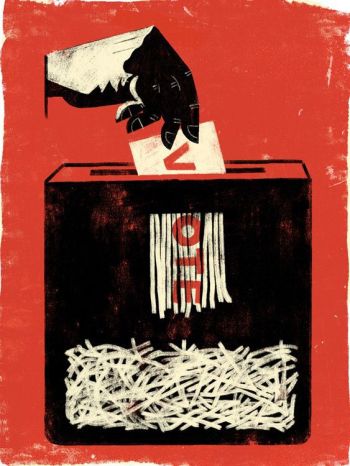"Terjebak" dalam Jaringan Apatis atau Berkobar di Pemilu?
- Photo source
- Author(s)
- Category
- College/University
- Reference
- Competition
- PemudaPemilu1
Description
In English
In facing the elections, are the youth trapped in the web of apathy, binding them to indifference, or do they choose to ignite, kindling the spirit to actively participate in shaping the future of the Negara Kesatuan Republik Indonesia?
This question casts shadows on the paradox of youth participation in democratic processes. On one side, we see a generation ensnared in the web of apathy, fatigued by complex politics and feeling that their voices lack an impact. They may perceive elections as an arena far removed from their daily realities, choosing to ignore it rather than engage in the political battles that unfold.
However, on the other side, there are youths who choose to ignite, refusing to be victims of creeping apathy and attempting to find their voices amidst the chaos in the political world of the country. They see elections as an opportunity to shape their futures, determining policies that reflect their values and aspirations. These youths, far from being trapped in the web of apathy, become potential agents of change.
Understanding the difference between the two is crucial due to their influence on political dynamics and social development. Youths ensnared in the web of apathy tend to leave political space vacant, providing opportunities for established powers to dominate without critical scrutiny. On the other hand, ignited youths bring fresh energy and new perspectives, diversifying the political stage and promoting innovation.
In facing this challenge, efforts are needed to balance this paradox. Inclusive political education empowering youths to understand their roles in the democratic process can be the key to unraveling the web of apathy. Additionally, listening to and responding to the aspirations of the youth are critical steps in fostering enthusiastic participation.
In conclusion, whether the youth are trapped in the web of apathy or igniting in elections is a narrative we are collectively writing. Through reflection, open dialogue, and positive action, we can guide the youth toward active participation that shapes the future of democracy with enthusiasm and hope.In Indonesian
Dalam menghadapi pemilu, apakah pemuda terjebak dalam jaringan apatis yang mengikat mereka pada ketidakpedulian, ataukah mereka memilih untuk berkobar, menggelorakan semangat untuk ikut serta aktif dalam pembentukan masa depan Negara Kesatuan Republik Indonesia?
Pertanyaan ini menciptakan bayangan tentang paradoks partisipasi pemuda dalam proses demokratis. Di satu sisi, kita melihat generasi yang terjebak dalam jaringan apatis, kelelahan oleh politik yang kompleks, serta merasa bahwa suara mereka tidak memiliki dampak nyata. Mereka mungkin memandang pemilu sebagai arena yang jauh dari realitas sehari-hari mereka, dan memilih mengabaikannya daripada terlibat dengan pertarungan politik yang terjadi.
Namun, di sisi lain, ada pemuda yang memilih untuk berkobar, menolak menjadi korban apatis yang merangkak dan mencoba menemukan suara mereka di antara keramaian dan kericuhan di dunia politik negara. Mereka melihat pemilu sebagai peluang untuk membentuk masa depan mereka, menentukan arah kebijakan yang mencerminkan nilai dan aspirasi mereka. Pemuda ini, jauh dari terjebak dalam jaringan apatis, menjadi agen perubahan yang potensial.
Pentingnya memahami perbedaan antara keduanya terletak pada pengaruh mereka terhadap dinamika politik dan perkembangan sosial. Pemuda yang terjebak dalam jaringan apatis cenderung meninggalkan ruang politik kosong, memberikan kesempatan bagi kekuatan yang mapan untuk mendominasi tanpa adanya sorotan kritis. Di sisi lain, pemuda yang berkobar membawa energi segar dan perspektif baru, mendiversifikasi panggung politik, dan mendorong inovasi.
Dalam menghadapi tantangan ini, perlu adanya upaya untuk menyeimbangkan paradoks ini. Pendidikan politik yang inklusif dan memberdayakan pemuda untuk memahami peran mereka dalam proses demokratis dapat menjadi kunci untuk membuka jaringan apatis. Selain itu, mendengarkan dan merespons aspirasi pemuda menjadi langkah kritis dalam mendorong semangat partisipasi.
Sebagai penutup, apakah pemuda terjebak dalam jaringan apatis atau berkobar di pemilu adalah narasi yang sedang kita tulis bersama. Melalui refleksi, dialog terbuka, dan tindakan positif, kita dapat membimbing pemuda menuju partisipasi aktif yang membentuk masa depan demokrasi dengan penuh semangat dan harapan.In Makassar


Enable comment auto-refresher